Ka’Chava Review – is KaChava Worth it?
What’s Ka’Chava? In this Ka’Chava review, we’re looking at the unbiased science to compare this shake to its claims. As a registered dietitian, my goal is that this science-based KaChava review empowers you to decide for yourself, is Ka’Chava worth it?
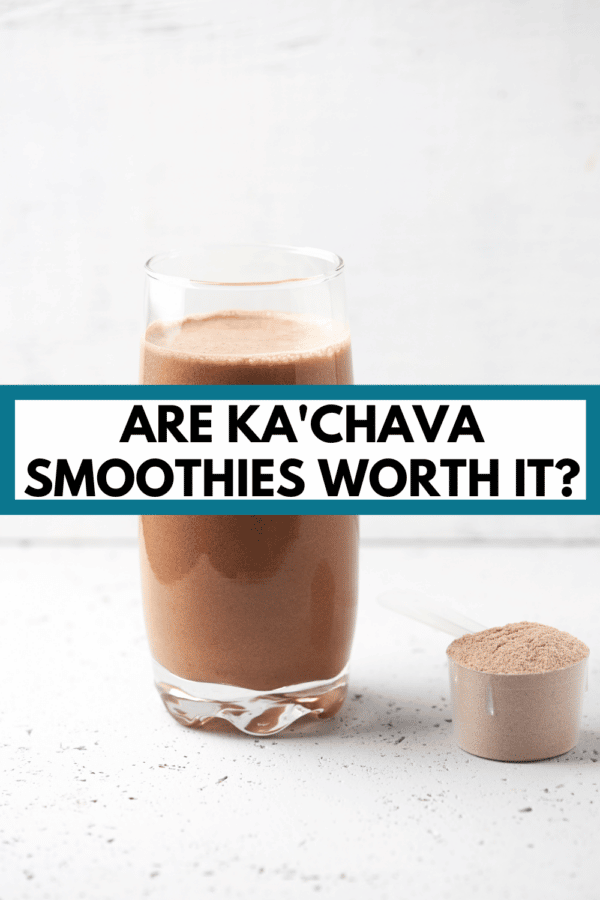
Note: this article was first published July 17, 2022, but was updated in July 2023 to reflect new information from Ka’Chava regarding product safety.
What is Ka’Chava?
Ka’Chava is a powdered high protein, high fiber shake supplement. It’s described as an all-in-one, plant-based, superfood “whole body meal.”
Ka’Chava Ingredients
Ka’Chava ingredients include several proprietary blends, consisting in excess of 85 different plant-based ingredients.
The various proprietary blends include:
- Plant Protein Blend: organic sacha inchi protein, yellow pea protein, organic whole grain brown rice protein, organic amaranth, organic quinoa
- Adaptogen Blend: organic maca root, organic shiitake mushroom, organic maitake mushroom, organic reishi mushroom, organic ginger, organic cordyceps mushroom
- Antioxidant/ Super-Fruit Blend: organic coconut flower nectar, acai berry, camu camu berry, organic blueberry, organic tart cherry, organic blackberry, organic strawberry, organic maqui berry, organic raspberry
- Omega EFA/ Fiber Blend: chia seeds, flax seeds, organic pure whole grain oat, organic acacia gum
- Super-Greens/ Vegetable Blend: organic beetroot, chlorella, organic moringa (matcha flavor only), organic kale, organic broccoli, organic green tea (matcha flavor only), organic parsley leaf, organic celery, organic cauliflower, organic spinach, organic brussel sprouts, organic asparagus, organic green pepper, organic garlic, organic carrot, organic cucumber, organic cabbage, organic green onion, organic tomato
- Digestive Enzyme Blend: amylase, protease, cellulase, lactase, lipase
- Probiotics/ Prebiotic Blend: inulin, lactobacillus rhamnosus, lactobacillus acidophilus
- Vitamin Blend: vitamin A, vitamin C, vitamin D, vitamin E, vitamin B1, vitamin B2, vitamin B6, vitamin B12
- Mineral Blend: folate, biotin, pantothenic acid, calcium, iron, phosphorus, iodine, magnesium, zinc, selenium, copper, manganese, chromium, molybdenum, chloride, sodium, potassium
- Other Ingredients: cocoa (chocolate only), coconut milk, soluble vegetable fiber, natural vanilla flavors, xanthan gum, lo han fruit extract, guar gum, cinnamon (chocolate only)
Let’s chat a bit more about these proprietary blends.
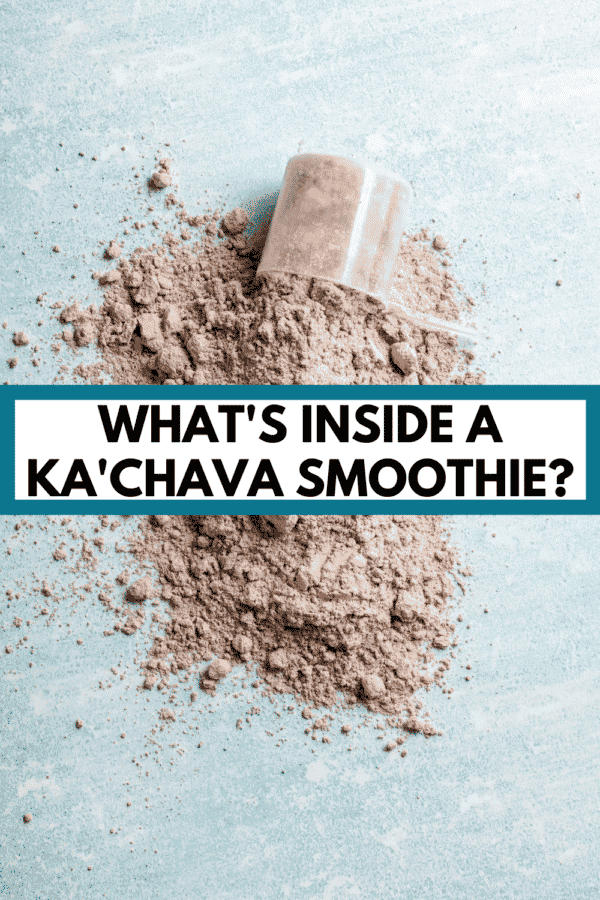
What are Proprietary Blends?
Proprietary blends contain undisclosed quantities and ratios of ingredients – think of it as a secret recipe.
It’s absolutely understandable for a company to want to keep their trade secrets confidential. I get it!
But from the consumer side, this can make it a little tricky to know exactly what — and how much — we’re getting.
Let’s use the ingredient maca as an example:
There are limited studies that suggest maca root may enhance mood and reduce depression symptoms in some populations. Most of those studies use 3000-3500 mg of maca.
A supplement company may see those studies and share that their maca-containing supplement promotes those same evidence-based benefits.
And while that’s not inherently wrong, the concern to be aware of is how much. How much maca is in that proprietary blend, and how does that amount compare to the amounts used in studies?
For the record, maca does appear in Ka’Chava’s adaptogen blend. But given that the entire adaptogen blend has a volume of 1020 mg, the product clearly doesn’t contain the 3000-3500 mg used in studies showing potential benefits of consuming maca.
This is not inherently problematic – it’s just something to be aware of as a consumer.
Ka’Chava Nutrition
Ka’Chava nutrition information varies slightly between their five flavors. In general, each serving contains 240 calories, 7-8 grams fat, 21-25 grams total carbohydrate, 4-7 grams fiber, 5-6 grams added sugar, and 25 grams protein.
Added Sugar
To sweeten their shakes, Ka’Chava uses uses coconut flower nectar. Similar to sweeteners like coconut sugar and agave, coconut flower nectar is considered a source of added sugar.
Some folks like to claim that these “natural” sweeteners are healthier with more micronutrients. But any micronutrients (not found in regular cane sugar) are found in such trivial amounts, it’s insignificant.
Is the use of an added sugar in Ka’Chava shakes a deal-breaker? That’s up to you! As a dietitian, I advocate for balance, awareness, and doing what works for you.
At 5-6 grams per serving, Ka’Chava falls well within the 25 grams (for women) and 36 grams (for men) of daily added sugar recommended by the American Heart Association. So I’d say that yes, a Ka’Chava shake can absolutely fit into your daily routine, if it works for you.
But if you consume other sources of added sugar or have health reasons that cause you to be particularly mindful of added sugar intake, this is something to be aware of/ you may prefer finding something unsweetened or sweetened with something like stevia or monk fruit instead.
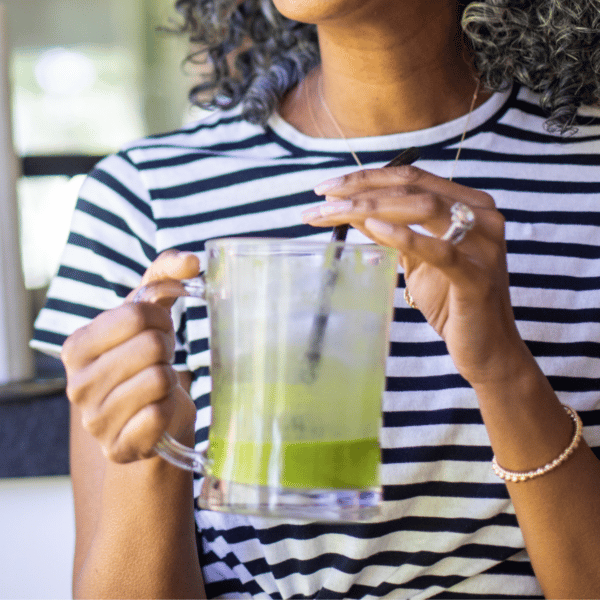
What Does Ka’Chava Taste Like?
Ka’Chava shakes come in five flavors (vanilla, chocolate, chai, coconut acai, and matcha), and generally tastes how it’s supposed to! If you’re not familiar with pea protein, you may find it tastes a little more earthy than you’re used to.
Additionally, some flavors and sweeteners can come across a bit artificial in taste to some, particularly those used to a more whole foods diet.
One tip to improve Ka’Chava’s taste is to use a blender to help create a smoother texture. I highly do NOT recommend a shaker bottle, as it congeals and blends terribly.
Remember that taste is highly subjective. So even if you read every all the Ka’Chava reviews on the Internet, you’ll see everything from love to hate. Some say it’s too sweet, whereas others say it’s not sweet enough. Keep your personal tastes in mind when reading reviews, too.
Ka’Chava Meal Replacement Shake
Ka’Chava is marketed as a meal replacement shake, but is it really?
At 240 calories, a Ka’Chava shake is far under the energy needs most adults require at a meal. Yes we all have unique needs, but a calorie amount this low is a red flag.
Additionally, shakes alone aren’t usually a satisfying meal for most folks since there’s minimal to no chewing. And there’s even data that suggests that chewing can significantly increase meal satisfaction.
To make a true meal replacement out of a Ka’Chava shake, try adding nut butter, fruit, or rolled oats. You could also try blending with dairy or soy milk or kefir instead of water for more calories and protein.
Alternatively, try eating it as a smoothie bowl and top with nut butter, seeds, coconut, cacao nibs, fruit, or granola.
Or just have it as a snack or one component of a full meal.
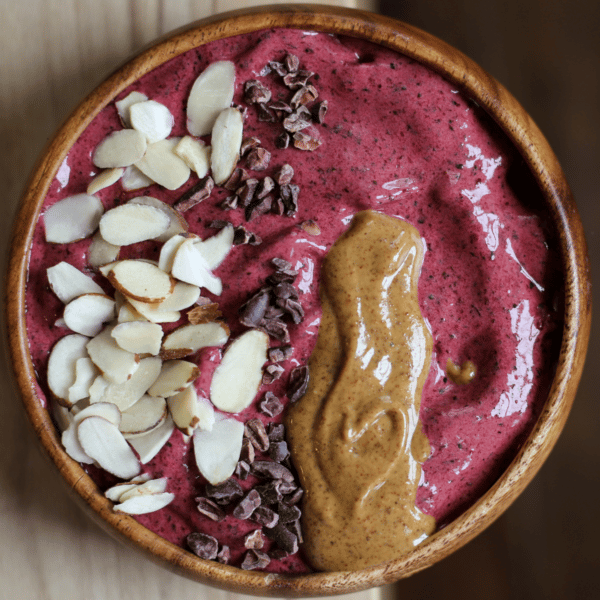
Ka’Chava Cost
Ka’Chava costs $69.95 per bag when buying through their website. ($59.95 if you enroll in the subscribe and save program with automated monthly deliveries.)
Each bag makes 15 servings/ shakes, making it $4.66 per shake (or $3.99 with the subscribe and save option).
Shipping is $7.95, or free if you buy two bags or more.
Where to Buy Ka’Chava
You can buy Ka’Chava on the Tribal Nutrition website, Amazon, or Walmart online.
Is Ka’Chava Safe?
Please note that this section has been updated in April 2023 to reflect new information from Ka’Chava about their product’s safety.
The FDA doesn’t regulate dietary supplements, so it can be difficult to determine the true safety of a supplement.
While Ka’Chava did not use to be independently tested by third parties, I’m SO happy to report that at some point they started more rigorous testing of their products.
As a dietitian, the most important testing I look for is third party testing.
Ka’Chava Third Party Tested
Ka’Chava states that, “In addition to the ISO17025 certified in-house testing laboratory, we also use third party testing laboratories that are certified and accredited.” Some of the third-party labs they work with include Eurofins, Silliker Laboratories/ Bio Merieux, Alkemist Laboratories, MQL (Micro Quality Labs), and IEH Laboratories.
Ka’Chava Ingredient Testing
In addition to third party testing their product, Ka’Chava also reports that they screen and test every single ingredient extensively before, during, and after production, all with third party labs.
The ingredient testing they perform includes: ingredient ID, pesticides, allergens, organoleptic, heavy metals, potency, toxins, purity, aflatoxins, and microbial.
Finished product testing includes: supplement fact verification, microbial, allergens, heavy metals, and organoleptic.
Personal Safety Concerns
No matter the supplement, there are some individuals who should always be aware of their potential personal safety concerns with any type of dietary supplements.
Individuals who are pregnant, breastfeeding, or have any medical conditions or take any medications should always check with their physician before starting any new diets or supplements.
Ka’Chava Side Effects
Some individuals note Ka’Chava side effects including cramping, bloating, gas, nausea, and diarrhea. These side effects could possibly be related to the added fiber and how well (or not) some folks tolerate it.
Other potential allergy-related side effects have also been reported by some.
Claimed Ka’Chava Benefits
There are many claimed Ka’Chava benefits – improved immunity, weight loss, energy, sleep, digestion, mental health claims, and lots more.
I have to be honest – I try VERY hard to be as neutral and unbiased as I can when it comes to supplement reviews. But as a dietitian, it’s always a bit of a red flag and sets off some alarm bells when a supplement seems to claim any and every potential health-related benefit as their own…especially when some of the benefits contradict each other. But let’s look at the science behind the claims.
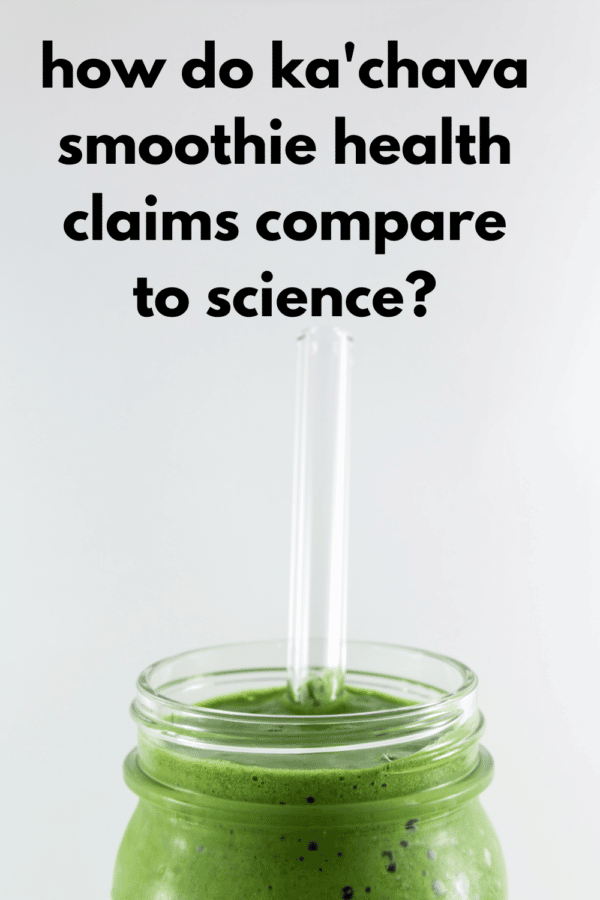
Immunity Benefits?
Ka’Chava claims to help produce immune cells and ward off infections. They state that it’s “packed with” nutrients that support the body’s immune system through physical barriers (skin and gut microbiome), cellular immunity, and antibody production. These nutrients include zinc, vitamin C, vitamin D, selenium, probiotics, vitamin A, and B-complex vitamins.
While these nutrients can support immune health, Ka’Chava contains less than 100% of the daily value of the nutrients mentioned.
If you’re concerned about your intake of these vitamins and minerals, a general multivitamin that meets recommended intakes may be another avenue to explore. (And if you’re able to, what I really recommend is working with your healthcare team to create a supplement regimen targeted to your individual needs)
Ka’Chava & Weight Loss?
Does Ka’Chava help with weight loss? It claims to support a healthy metabolism, boost satiety, and support a healthy weight. Ka’Chava’s website says it’s, “the ideal plant-based meal if you’re looking to get (or stay) svelte, minus the hunger pangs.”
Remember that 240 calories is not a full meal. Even if weight loss is a goal, you still need to eat enough. In fact, you may find that you have more success if you eat enough that yes, keeps you in a calorie deficit, but is enough to keep you satisfied, too.
Protein & Fiber May Help Weight Management
Ka’Chava is basically a glorified protein powder with added fiber. We know that both protein and fiber can be helpful with weight loss and management. Multiple small studies and a meta-analysis of randomized controlled trials support higher protein diets leading to greater fullness and satiety during weight loss. High protein diets may help prevent weight regain after loss, too. And fiber supports metabolic and overall health, including weight management. One randomized, controlled trial found that even something as simple as focusing on 30 grams of fiber a day may support weight loss.
But the accurate weight loss claims pretty much end there.
Faulty “Evidence” Behind Their Claims
Honestly, if Ka’Chava had just left it here, I would’ve been fine with it. But instead, they try to highlight a bunch of nutrients found in the supplement (like probiotics, omega-3 fatty acids, magnesium, and vitamin D) that actually aren’t going to impact weight or fat loss.
There are two systematic reviews and meta-analyses of randomized controlled trials that show the effects of probiotics on fat mass are insignificant and probiotics are not effective for reducing weight or BMI.
Omega-3s offer some health benefits – but none regarding weight loss/ fat mass in humans.
Then to make things even more frustrating, Ka’Chava tries to cite studies and sources to back up their claims, but most studies linked to were limited, small, inconclusive studies, or actually refuted Ka’Chava’s claims.
Case in point: the article Ka’Chava linked to with its claim that vitamin D helps weight loss actually states, “vitamin D3 supplementation during weight loss did not increase weight loss or associated factors compared with placebo.” (Which tracks – a 2019 review of RCTs concluded there is no clear evidence that vitamin D affects weight loss.)
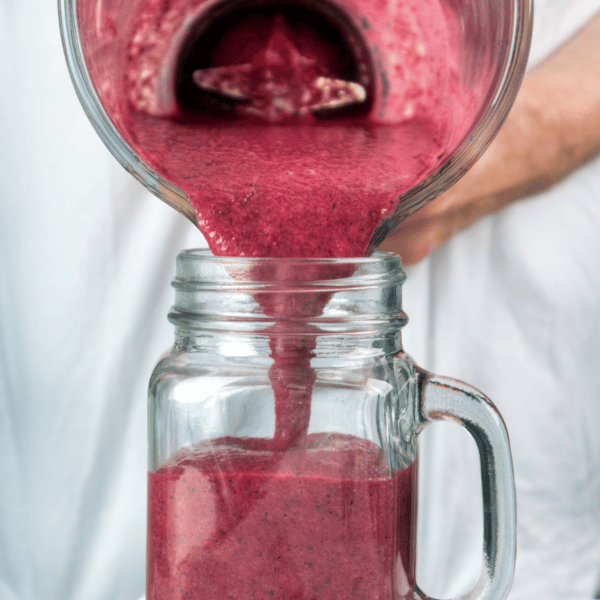
Energy Benefits?
These inaccurate claims and fake evidence are found in many of the claims on their website.
Like, will Ka’Chava improve your energy? I mean, sure it provides literal energy (calories) to fuel your body, but Ka’Chava is making these claims regarding other nutrients, too. (Like B-complex vitamins, iron, vitamin C, phosphorus, magnesium, and vitamin D.)
And here’s the thing: most of these nutrients aren’t going to directly translate into feeling more energized – unless you’re deficient. And even then, you probably won’t feel an immediate energy surge after drinking a Ka’Chava shake.
Case in point: if you’re anemic, eating a high-iron food won’t help you immediately feel energized. It will, however, slowly help over time as you replete your iron stores. (And Ka’Chava being plant-based means it contains non-heme iron, which is less bioavailable compared to heme iron from animal sources.)
Vitamin D & Energy?
Not to pick on vitamin D again, but studies on vitamin D’s improvements to energy and fatigue are done in populations that are vitamin D-deficient. If you are vitamin D deficient, you need higher supplementation – not Ka’Chava. Why?
Ka’Chava contains 5 mcg of vitamin D2 (ergocalciferol). In contrast, one study found benefits from vitamin D supplementation, but they used 2,500 mcg (converted from 100,000 IU) of vitamin D3 (cholecalciferol) – five hundred times the amount found in Ka’Chava! (Also note that vitamin D3 is typically more potent and effective at raising vitamin D levels compared to vitamin D2, found in Ka’Chava).
Sleep Benefits?
Ka’Chava claims to keep you “physically and mentally energized,” — but then also says their shakes, “help you drift off to dreamland.”
So…which is it? This is anecdotal, but I personally don’t find myself drifting off to dreamland very easily when I’m feeling physically and mentally energized.
Digestion Benefits?
Gut health is super trendy right now, so any and every supplement is making digestion claims – including Ka’Chava.
Ka’Chava does contain some ingredients, like fiber, probiotics, and vitamin D, that may help support digestion.
Fiber is well known for its benefits to overall health, including your gut health. (Check out some of my related articles, like Does Fiber Make You Poop? and benefits listed in this High Fiber Foods Chart).
Probiotics
Probiotics can support digestion, but probiotics aren’t as simple as they seem. There are many, many different strains of probiotics (like, hundreds) and they don’t all do the same thing. In fact, some strains of probiotics may help something (i.e. IBS), whereas others will make it worse.
And while Ka’Chava does disclose the types of probiotics in their shake (lactobacillus rhamnosus and lactobacillus acidophilus), they don’t disclose how many CFUs (colony forming units) it contains – which is the medical standard (and another red flag about the lack of expertise involved in Ka’Chava).
Honestly, if you feel like you need a probiotic supplement, I wouldn’t turn to Ka’Chava. Instead, find out which probiotic strains are best for your unique health and concerns and talk to your doctor about an appropriate dose.
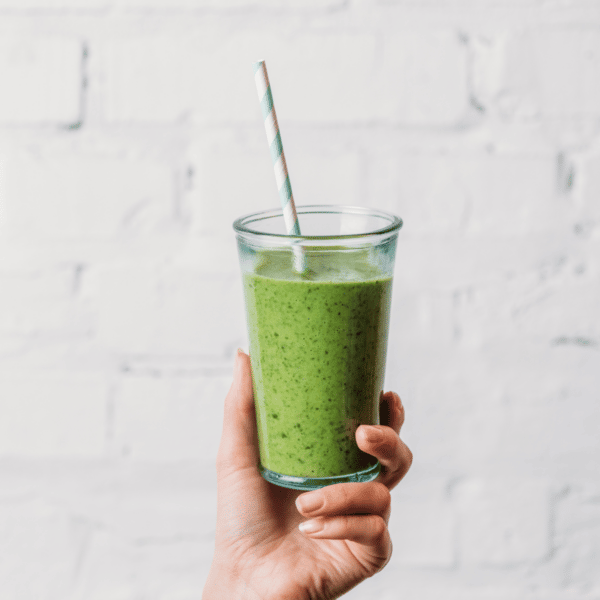
Mental Health Claims
Ka’Chava says that, “a poor diet can drive stress, anxiety, and a range of mental health issues that mess with mood and productivity,” and claims to “help boost mood, improve focus, and calm anxiety,” “restore your mindset to its peak,” and “may help improve psychological and cognitive health.”
Yes, there is some evidence that suggests healthy eating patterns may help with prevention and treatment of depression and anxiety. However, we need a lot more quality research (double-blind RCTs) to get a better understanding of this area of nutrition.
Also, as a healthcare professional, it’s imperative that clinical mental health disease isn’t diluted to “mindset.” Mindset work is a valid thing – but so is clinical mental health diagnoses, and they are not the same.
Even if you are trying to create a healthier mindset, as a dietitian who has worked with clients helping them with their mindsets…yeah, the answer is not a shake.
Other Health Benefit Claims
For brevity’s sake of this Ka’Chava review, I’ll stop analyzing individual claims here. But know that Ka’Chava markets many other claimed benefits (like improving muscular health, joints, bones, heart health, reducing stress, etc.) They even claim to improve your appearance by boosting your “glow factor from within.” Um…I’m not finding any clinical trials about that glow factor…
Let’s Recap
For the record, I appreciate that Ka’Chava does state, “there’s no magic bullet” when it comes to improving your health. But that doesn’t cancel out some potential concerns:
Additional Potential Concerns:
- Simon Malone, Ka’Chava’s creator, has no medical or nutrition background. He comes from a corporate background, left to “get into nature,” saw a business opportunity and created Ka’Chava.
- There is no mention anywhere of any medical, health, or nutrition experts as part of the Ka’Chava team. Or that any were consulted during the creation process, reviewing the supplement, etc.
- I’m also not seeing any mention of a board, period, let alone medical or nutrition experts on a board.
To note, I personally wouldn’t say any of these things individually are inherent deal-breakers. But if a company is going to make health claims, I think it would reflect more due diligence to see some health experts involved at some level.
Also of note:
- There are several outstanding complaints/ currently an F rating on the Tribal Nutrition, LLC Better Business Bureau page (Tribal Nutrition is the company that makes and sells Ka’Chava).
Potential Ingredient Concerns
- They include raw forms of some ingredients, like maca, likely because that’s often perceived as “healthier” by many folks. But raw maca is hard to digest raw. Most traditional cultures that use maca use a treated or cooked version, and clinical studies often use gelatinized versions.
- Ka’Chava has added a lot of vitamins and minerals to its shake, which is pretty unnecessary for most healthy folks.
Health Claims Potential Concerns
- Calories are way too low for this to be a viable meal replacement. And given how heavily this is marketed as such, I find this very misleading.
- Ka’Chava’s health claims are all over the place, even with some contradicting. They’re trying to be too much to too many people.
- Ka’Chava grabs at lots of incredibly weak or flat-out nonexistent evidence to “support” their claims.
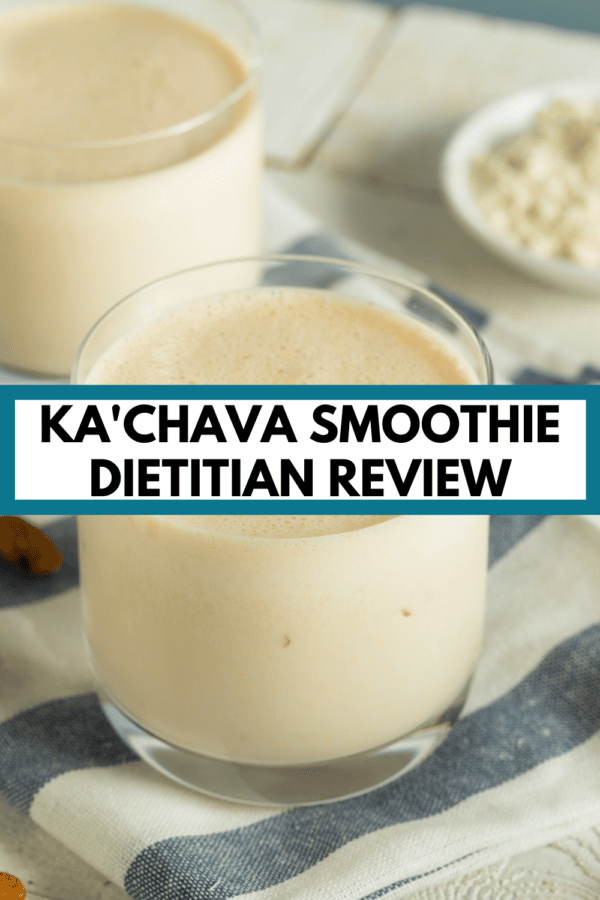
Does Ka’Chava Work?
This is highly subjective, will depend on who you ask, and what problem they were expecting Ka’Chava to solve.
Does Ka’Chava work as a fiber-enriched protein powder? Sure, if that’s what you’re looking for. I think there may be more affordable per serving options out there, but I would say it meets this purpose.
Does it work as a meal replacement shake? No.
Does Ka’Chava work for weight loss? It depends. In theory, if you swap one meal for a 240 calorie shake, it may lead to a calorie deficit. And a calorie deficit is required for weight loss. But as a dietitian, I see many folks who are trying to eat too low calorie and “clean” end up hungry and unsatisfied by the end of the day or week. This often leads to excessive snacking and/ or binging, which often usually negatively affects weight loss efforts.
At the end of the day, it’s your overall eating pattern (and overall calorie deficit) that will lead to weight loss, not any one individual food.
Ka’Chava Alternatives
The best way to find a Ka’Chava alternative is to look at what you’re specifically looking for. Do you want a plant-based protein powder? Greens powder? Fiber supplement? Are you really looking for a multi-vitamin? Probiotics?
Get specific with what you want and work with your healthcare team to create a targeted supplement plan for you.
And for the record, there are far more affordable and better quality pea protein supplements available over Ka’Chava. Fiber supplements, too. Not to mention that most folks would likely see a lot of similar benefits simply by focusing on adding more fruits and vegetables to their day, along with other basic forms of self-care.
Ka’Chava Review Final Thoughts – Is Ka’Chava Worth it?
It’s up to you to decide if Ka’Chava is worth it for you, your needs, and your budget. Will it cause harm? Not likely, for an average, healthy adult. Their nutrition stats are pretty good, and it does use pea protein (a complete plant-based protein).
And since revising this review for 2023, I do greatly appreciate that they now perform third party testing. But there are still some potential concerns that I unearthed in this Ka’Chava review.
Is it something that I, as a registered dietitian, am personally using or recommending? No – but that doesn’t mean it may not be a good solution for you.
Ultimately? There’s no universal right or wrong answer here – you do what works for you!
Want More Reviews?
Check out more of my nutrition articles, including more science-based reviews on collagen peptides, butterfly pea tea, blue matcha, my Athletic Greens/ AG1 review, and my Liquid I.V. review.
Still reading this Ka’Chava review and deciding is Ka’Chava worth it? Save this article on Pinterest and come follow me on Instagram and let me know what other kind of reviews and articles you want to see!

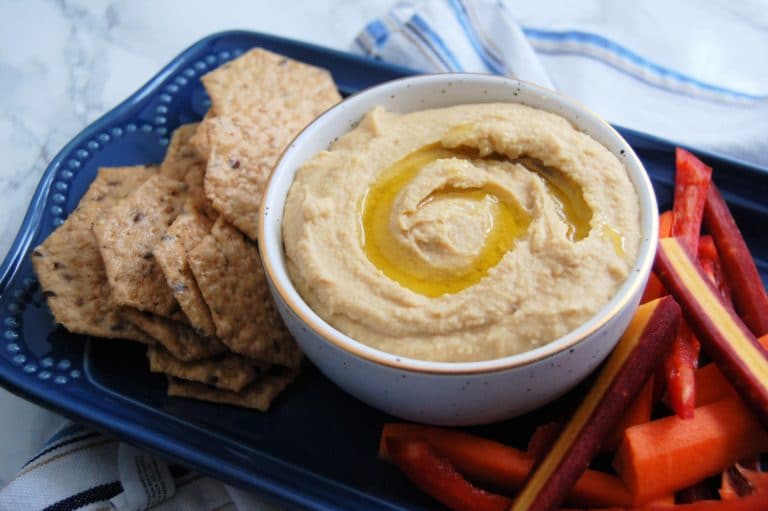

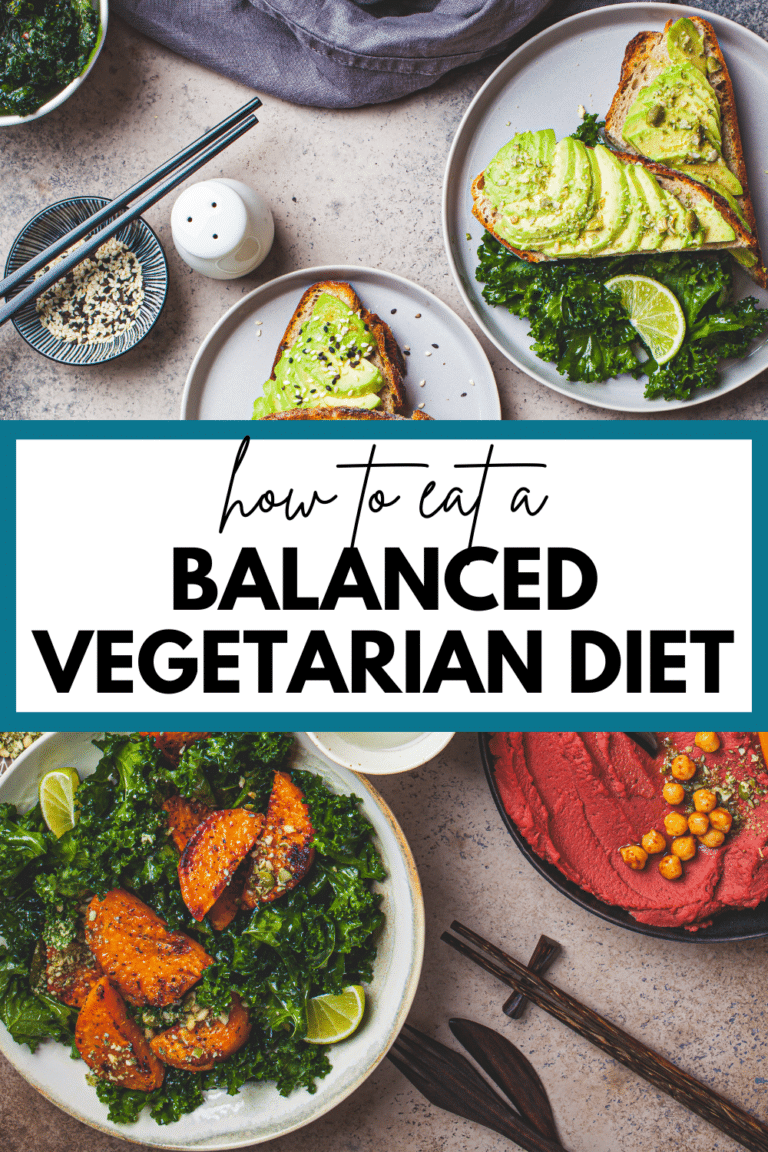
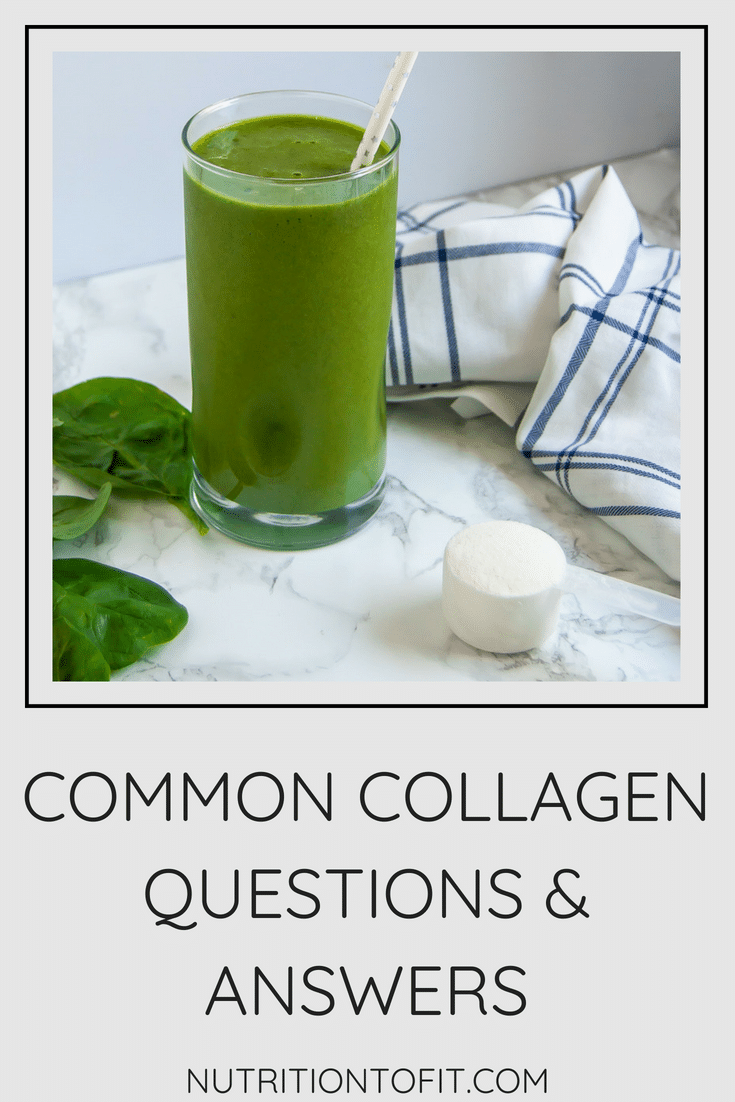

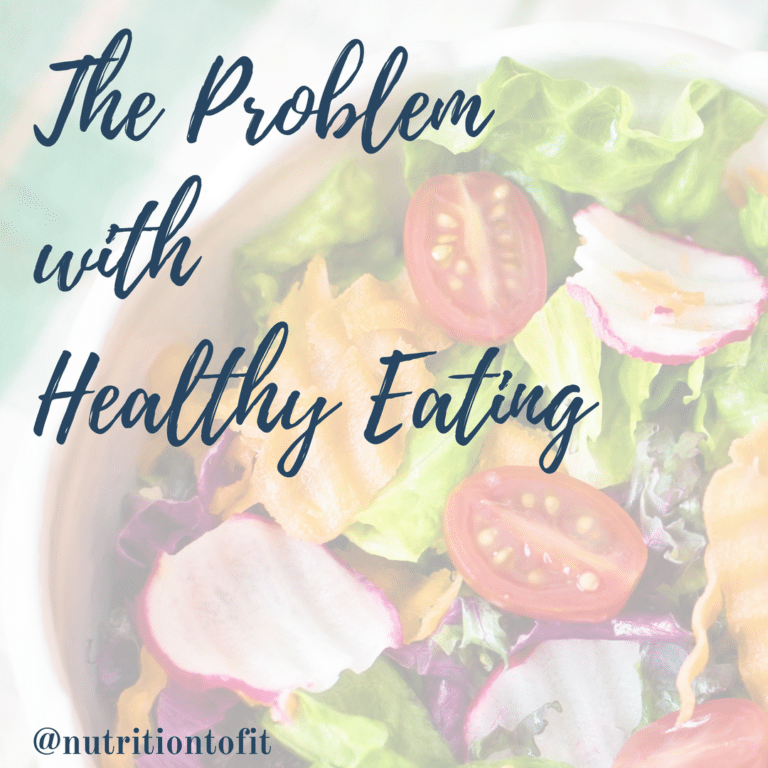
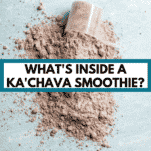
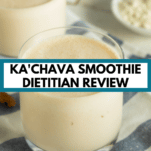
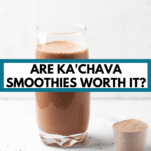

I liked the review, thank you for the time you put into this as I do not want to waste money on a nutrition supplement that isn’t ‘going to do what I thought it was going to do. However, and this is a big however, you do not make comment as to what alternates you would recommend in place of this product for cheaper. That was a huge disappointment for me.
As a consumer, product X intrigues me, looks very expensive. Caveat emptor, product X says it does it all yet, based on product X components, research says the effects contradict what the product claims to do. INSTEAD, take this type of product (not brand Y specifically)….and heavily label as a non-endorsed suggestion so people know you are not looking to profit. Or contact me via email and let me know what you suggest. 🙂
Hi Jeff, I’m glad you found the review helpful. I hear your criticism, but like I said in the article, an alternative is going to depend on what exactly you’re looking for. That’s part of the problem with Ka’Chava – they’re trying to be so many different things to so many different people. And at this time, I don’t think a single supplement that actually does everything Ka’Chava claims even exists — which is why I can’t recommend a specific alternative product.
If you’re really just needing a protein powder to add to homemade shakes/ smoothies, my #1 recommendation is to always make sure the supplement is third party tested since the FDA doesn’t regulate dietary supplements where I’m based in the U.S. And if you’re trying to boost fiber in a smoothie, psyllium husk is a great fiber option with research-based benefits, along with fiber-rich fruits, vegetables, nuts, and seeds.
Hope that helps!
This is very interesting because it specifically says third party verified on their website. And they said they don’t only work with one lab. They work with several labs.
Jess, thank you so much for this comment. This is a newer development from Ka’Chava (one that I am VERY happy to see) and I will soon be updating my review to reflect this change they’ve made!
It’s the same old story, “if it sounds to good to be true, it’s not true”. I’ve been watching this product being flooded in our faces with all the highly energetic commercials, which make me even more suspicious. As was found, the creator has no back ground, only a short time in the business environment, which doesn’t make him an author of anything. He had his mind set to make quick bucks in a market place where it is notoriously know for quick profit dietary schemes, which he has shown us that’s what he has done.
The big problem is, he uses the mass media to get into people’s minds with the flood of advertisements with catchy pictures, pretty faces, slim bodies and questionable reviews. There are a lot of suckers out there who will spend their money foolishly and after all is said and done, they end not any better than they were before they wasted their money.
Thank you for your review, it was factual and direct. Now we need to get people to reading and stop throwing money into the pockets of opportunist out for a quick buck….
I’m sure they have a sizeable marketing budget and definitely seem to know how to market to their target audience. It can definitely be frustrating to see all the marketing claims and pictures and hype for so many different wellness trends and supplements, but even more so when the product doesn’t really stack up.
Given your analysis of Ka’Chava, including the number of red flags you point out, why are there advertisements for it on your website? You state that you are nervous about the quality of their ingredients, yet there are links to purchase the product on your website. Not trying to be antagonistic, just curious. Thank you Lindsey!
First of all, GREAT question, and I really appreciate the respectful way you asked it! Seriously, thank you. And I really applaud you for thinking critically and asking questions!
There is only one link within the article, and that is the Amazon link under the “where to buy” section.
While I found a lot of red flags and honestly was quite disappointed in this product, ultimately as a dietitian it’s not my job to tell people what to do. I view my job as helping people make an informed, autonomous decision. So if someone reads this article and still decides they want to try it – that’s their choice.
As far as the ads on the site, I work with a network that manages all ads (and I have set some boundaries and advertisement parameters). Unfortunately I can’t control every ad that appears on the site (which is the downside – but the upside is that it enables NTF to be my job and provide recipes and articles like these free of charge). Ads are tailored to users, and if a user is Google searching Ka’Chava and Ka’Chava is putting their marketing money into ads, there’s a strong chance that those ads will (a bit ironically) be served here. LOL even I got a bunch of Ka’Chava ads on my own site when I started researching them for this article.
I aim to be transparent and I hope this helps to provide an explanation. Always here if you have more questions, and thanks again!
I’ve been using Ka’chava for over a year and this is why. I typically didn’t eat breakfast daily, or would choose something quick that was not specifically healthy. Way too many eggs and meat proteins, for example. Using Ka’Chava has helped me develop, a quick, satisfying morning ‘meal’ that satisfies my needs. As the writer states, it’s all up to the individual to choose what you want/need.
I am also older, in the 60-70 age group, and have much lower appetite needs than in my younger years so the 240 calories is just about right, and if I wish to add something else to it there’s no ‘guilt’ about over-eating.
The main reason I chose Ka’Chava is because of the flavor achieved with only using water as the liquid additive. I’m not a fan of using dairy or plant-based milk products in smoothies so this product works well for me. I did not choose it as a weight-loss product, although that would be a welcome side effect. I do find on days when my schedule doesn’t allow for mixing the smoothie, I miss it and it definitely affects my digestive activity.
Personally, I enjoy the convenience of the distribution system, and the versatility of being able to schedule the shipment of the product to fit my needs.
I found the review interesting and informative. It did not sway my decision to continue using the product.
Thank you this was a very helpful article and thank you for doing the research.
You’re welcome, Ester, thank you for your comment!
What a great article, this is exactly what the internet needs more of, really appreciate it.
Thank you, Scott!
I liked ka chavia don’t think it did anything for me what can I replace it with
Hi Tom! If you’re looking for a meal replacement smoothie, I would try making smoothies with several servings of fruits, vegetables, and leafy greens. Add in healthy fats (like avocado, nuts, seeds) and at least 20 grams of protein (can be from protein powder or other sources like dairy or soy milk, Greek yogurt, tofu, etc.). You can pre-make bags of smoothie ingredients to keep in the freezer for ease, too. Let me know if there’s something else specifically you were looking to get out of Ka’Chava/ a replacement!
I am with Tom. What can I replace Kachava with?
Hi Charles! I replied to Tom, but I’ll reply here for you, too! If you’re looking for a meal replacement smoothie, I would try making smoothies with several servings of fruits, vegetables, and leafy greens. Add in healthy fats (like avocado, nuts, seeds) and at least 20 grams of protein (can be from protein powder or other sources like dairy or soy milk, Greek yogurt, tofu, etc.). You can pre-make bags of smoothie ingredients to keep in the freezer for ease, too. Let me know if there’s something else specifically you were looking to get out of Ka’Chava/ a replacement!
I think we use “Kachava” like products bc we don’t have the time to go buy and manage fruits/veges etc. and freeze them etc. Or we are on the run/traveling etc. and need quick meal replacements for either weight loss and/or just no time to cook. So going back to the ask from Charles and Tom, what is a better alternative to Kachava? I use Kachava now, but always open to better options. I’m not going to fill my house with veggies and fruit bc I’m traveling a lot and it goes bad or when I’m traveling I need something I can mix with water or I’ll eat much worse than a Kachava smoothie. Thanks for your feedback.
Hi Lindsay,
Will you please answer Jeff‘s question? I too am very busy and do not have time to collect all these fruits and vegetables, good fats, eCetera and store them in baggies in the freezer… So I was looking for a healthy alternative protein powder that is better than other crap I would eat for breakfast like croissants, if I didn’t have time. So can you please recommend a healthy P-based protein powder for us to try? You said that there are a lot of higher quality P protein powder is available, but you neglect to mention any of them. How can we have a clue what is a healthy P protein powder or not? We do not know the difference we can only believe that they’re advertising claim in which all of the companies will say it’s the best ….please do us a favor and answers Jeff’s question . TYPE
When looking for a quality protein powder, my biggest recommendation is to see if the protein powder you’re considering is third-party tested. This will ensure it contains what it is supposed to and has no contaminants.
This article has also been updated since it was first published to reflect the new information that Kachava is now third party testing their powders/ shake mixes, if that helps!
You didn’t identify the percentage of phosphorus and potassium in the product. I’m a dialysis patient and have to be cautious about both those minerals. I do take a phosphorus and potassium blockers which has helped my my labs
Appreciate the open honesty based on completed research. It saved me from gullibly paying the high kachava price. Can you please cite on-line recommended diets (with exercise) on how seniors can safely gain muscle mass or is that nearly impossible? BMI is 20.1 Richard
Thank you for your extensive review.
I had gastric bypass surgery 22 yrs ago. I lost 138#’s and currently weigh 113.5# at 5 ft. I’ve mostly eaten proteins to help prevent more muscle and hair loss. Now I have coronary artery disease and had 3 stents put in this past May 2022.
I can’t eat much at all. I know I need more fruits and veggie’s as well as foods rich in good fats. I cannot consume enough food items to fulfill my needs.
I thought Ka Chava might offer those things in a supplement I could sip on and consume. Any suggestions?
I’d recommend discussing your concerns with your doctor and look into getting some labs done to check for potential nutrient deficiencies. And if possible, I suggest meeting with a bariatrics dietitian to take a closer look at your intake, your labs, and see what supplements may be beneficial for you personally.
I’m doing some research on protein supplements for my health care. I would like to know if there is anything else I could try. Thanks again
I liked your approach toward this review. As a person who has been combating persistent skin and stomach issues (not major, or life changing) this product has too many ingredient. Deciding to use products like this, involves not only what it might do for you, but also what side effects it might have. This one seems to have something for everyone’s allergies 🙂
A related issue, with so many ingredients, their supply chain concerns must be significant. What if an undesirable element (customer reported issues) is found in the end product? Where did it come from?
And finally, I can not imagine how the company can know all their claims are true – and in my situation I think the risk is larger than the possible benefits.
We have food allergies and skin and stomach issues in my family, too, so I feel you!
I concur with this. I gave a review for Ka’Chava’s website very similar to what I posted here on this page, citing pros and cons. It was almost verbatim to what I posted here. Ka’Chava didn’t publish it. That says a lot about the company’s integrity. If I’m a legitimate and honest business, I would welcome all comments, definitely the favorable ones but also the unfavorable ones too so I can identify any areas for product improvement. I suppose Ka’Chava only cares about its profits.
Excellent, well documented and well written article. When writers reference meta- analyses in their articles I know they read research studies and have a solid basis for their conclusions. Thanks for a great job!
Thanks so much, Steve, I really appreciate your appreciation for meta-analyses, too. 🙂
I tried Ka’Chava. I made the shake precisely as the directions instructed. I experienced all of the cons listed (bloating, cramping, indigestion, gas, nausea, and diarrhea). These reactions in me were very extreme, excessive. I’m not sure if that was due to the added fiber or for some other reason. I mostly follow a plant-based diet. So, I consume copious amounts of fiber every single day. The extra fiber ought not to have caused a reaction in me. I only had that one shake so far.
As for the pros, yes, I did feel a little energized and yes I did sleep well that night. But, I don’t know whether I can give credit to Ka’Chava. Fiber does give you energy. I had a good workout that day, and it’s normal to sleep well after exercise. After only one use, my experience is purely anecdotal. I may try again. But some of what you provided mirrored what I experienced. I have been hesitant to try it again. The discomfort was so great, that I have been afraid to give it another try. But I will eventually.
As an aside, I think the raw maca is the reason why people have gas and bloating and indigestion and nausea. People have a hard time with raw maca. The Ka’Chava company blames these side effects on the increase in fiber. But for people like me who normally eats large amounts of fiber every day, the fiber in this drink should have no ill effect. So, I’m certain these side effects are from some other source. After carefully reading the ingredients again, I’m certain the culprit is likely the raw maca. I asked my doctor about maca, and he told me there aren’t enough double blind studies to confirm maca’s safety. He said the effects aren’t likely long lasting (mine certainly weren’t) but they were surely crippling momentarily), but he advised to only consume it in small quantities.
I feel like this article was not objectively written. Sounds like this article was a way to prove not to use Kachava instead of oh it can be good for you if you don’t eat well or do anything today. There is plenty of good out of Kachava and is a great replacement to the store bought protein blends. Yes it’s a little more pricing but I have used it as a meal replacement by adding peanut butter and fruits to the shake…which is you did any research it is what they recommend when using as a meal replacement to get the calorie content up. Well written some valid points but you obviously didn’t use this or do any research before writing your opinion piece.
I appreciate your feedback. While I am a human and not a bot (although bots can be incredibly biased as well, but that’s an entirely different topic), I promise my intent of writing this article was not to prove not to use it. In fact, I love when I find products and supplements that stand up to the claims, are reputably sourced, third party tested, and can make my life and everyone’s lives easier and healthier! That said, I’ve heard that Ka’Chava has made some big changes though, so I’m going to re-look at their product and claims and will update this article with any new findings (and will note for transparency, as well, the date of updating and what updates I make). Thanks, Josh, and have a great day.
I have been using Ka’Chava for years because I was looking for organic and whey free option. It is a certified product for organic properties which means it needed to have been tested and reviewed.
Two, omega, vitamin d and magnesium have anti-inflammatory effects and properties which do aide in losing weight.
My concern here is that as a dietician there seems to be some misunderstanding of nutritional value missing in the review. Are you also a nutritionist?
And most Americans over eat, significantly over eat and consume far too many empty calories that cause inflammation.
Which is why fiber is raw form is something to work up to. However, fiber is extremely important to the body for numerous reasons. Most people increase their veggie and fruit intake of the wrong ones because their taste buds and bodies are used to processed food.
Great article – i read this after buying, but before trying,so will be alert to potential side effects And let you know – AGREE WITHT THE SOPHISTICATED MARKETING – my objective is not weight loss, but weight/mass addition – but do want to eat less process foods and make a serious attempt at 1 week as a vegetarian in the next 6 weeks which i thought this product cold help with –
Please advise – nice job!
This is not individualized advice, but as a general suggestion to anyone wanting to use shakes/ smoothies to help with weight/ mass gain, I’d encourage adding more nutrient and calorie-dense ingredients. So blend in things like oats, nut or seed butter, nuts or seeds, coconut milk, avocado, silken tofu, additional fruit, even a drizzle of extra virgin olive oil. If you’re considering vegetarian (and not vegan) you can also increase the calories and proteins with ingredients like full fat Greek yogurt or cottage cheese. Or instead of blending with water, try blending with milk, kefir, or soy milk (or another higher protein/ calorie plant milk alternative). Good luck!
Hi Lindsey,
I was considering utilizing the Ka’Chava, but after reading your review, if I was a person easily influenced by reviews, I would have paused. Prior to writing your opinion piece, I feel you should have been a test dummy for the Ka’Chava. If you’re going to provide your opinion on anything, don’t you think it’s only fair that you attempt to be impartial and use Ka’Chava? I apologize in advance, if I come off rude.
Janet
Yeah, so, I’m not a test dummy. I’m a registered dietitian, but also a real, live human being who values her health, which is why I spent a significant amount of time researching this product (and shared my findings here). And for the record, I REALLY wanted to like the research on this product – I even had my cart ready to check out! I would love to have a high fiber and high protein, delicious shake that could give me a convenient, healthy option! But the tens of thousands of dollars and many years I’ve spent on my education, credentials, experience, and continuing ed made me pause when I used that to evaluate the research on the product. You are more than welcome to try it yourself! I’m sure you can find some more opinions on Amazon or other review sites if that’s what you need.
What about grains? I’ve seen articles and videos from MDs claiming grains are not good for you, even whole grains.
Generally, I disagree. There’s a lot of evidence pointing to the ways our health can benefit from particularly whole grain intake. I’ll add an article diving into the research on grains to my list of articles to write and publish soon! Thanks!
Hello, and thank you so much for your honest opinion about this product!! I will tell you all exactly what this product is…. It is ROCKIN WELLNESS 2.0 Same BS hype, same BS advertising and not only do you get every completely UNDERDOSED superfood you could ever want, but as an added bonus they ripped the kitchen sink out and tossed it in as well!! And just to slap you across the face a lil more your paying 70.00 for a half months supply?? WHAT?? Thats right, a whole woppin TWO WEEKS supply with grossly underdosed ingredients!! Now if you want a months supply it will only cost you a measly 140.00 of your hard earned $$$ Companys that only give you a half months supply at 70..00 a pop are showing their true colors right outta the gate!! PEOPLE, stop falling for the glamorized in your face advertising chalked full of subliminal BS messaging AKA “zero to hero” in just 15 days😁😁The women who wrote this assessment about this product is RIGHT ON THE MONEY!! Best wishes, Mark
For ME, this is great because I’ve tried many types of protein powders and I usually end up feeling bloated. I’m 54, work out 5x’s a week, but sweets are my weakness. I also have gut problems. My intake of protein has really cut all sweet cravings and this doesn’t help my stomach. I’ve been drinking in the morning and sometimes in the evenings because I’m not hungry. I usually wake up hungry in the mornings, but I don’t after I have this. I only put a banana and sometimes some protein in it. So for me, it’s helped in those areas. Sure others may do the same, but the ones I’ve tried don’t make me feel well.
Hello Lindsey,
I’m just now seeing your review & hoping you see this msg although it’s now 2024😊 Your review has been very enlightening. It really helped, thank you!
I was searching to get info on this sodium chloride info from Kachava’s site I’ve pasted below.
Does the below info mean that the total Sodium amount in the serving is 700mg?
I’m confused, please help me understand this.
Chloride (as sodium chloride and nat. occurring)300 mg 13%
Sodium (as sodium chloride and nat. occurring)400 mg 17%